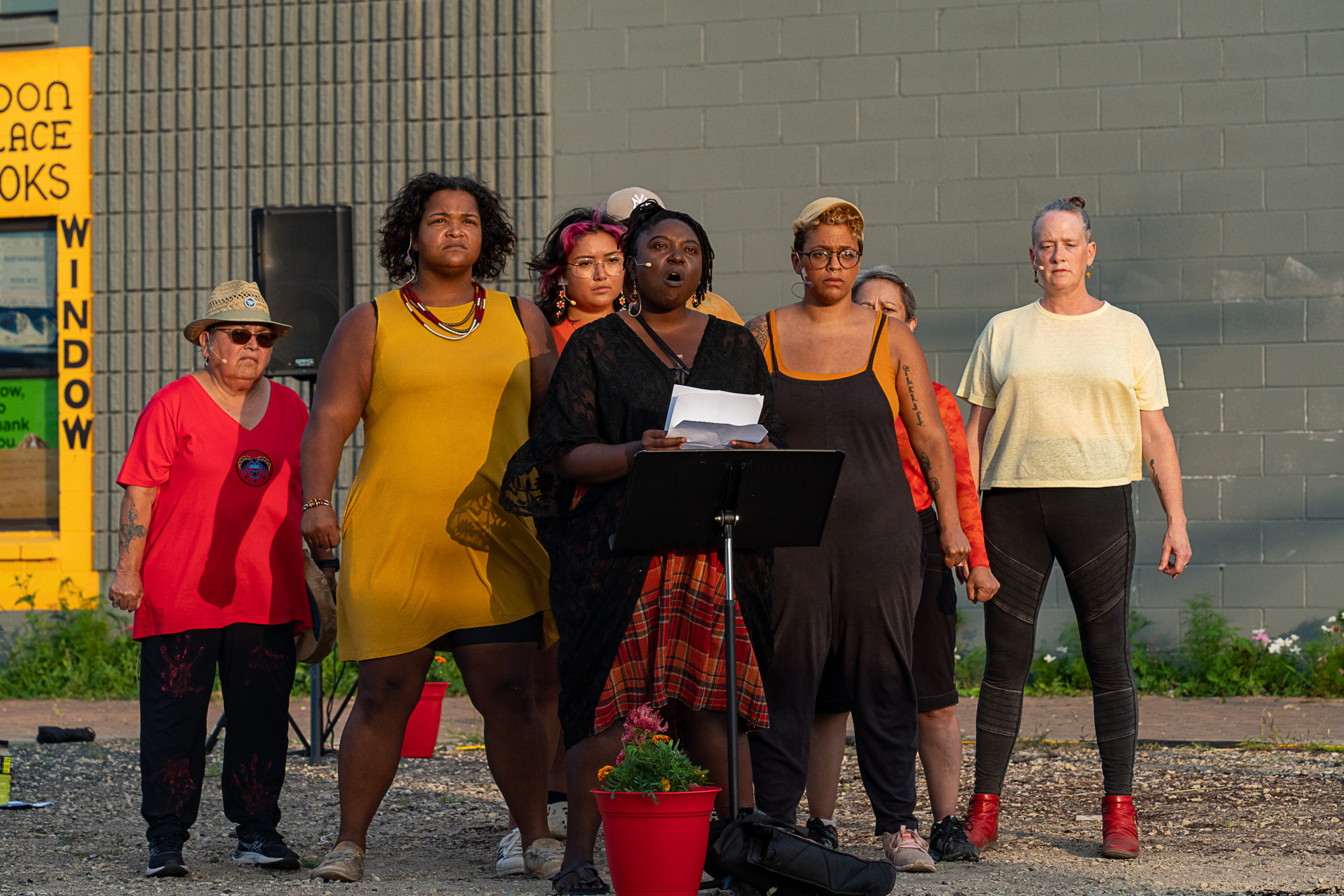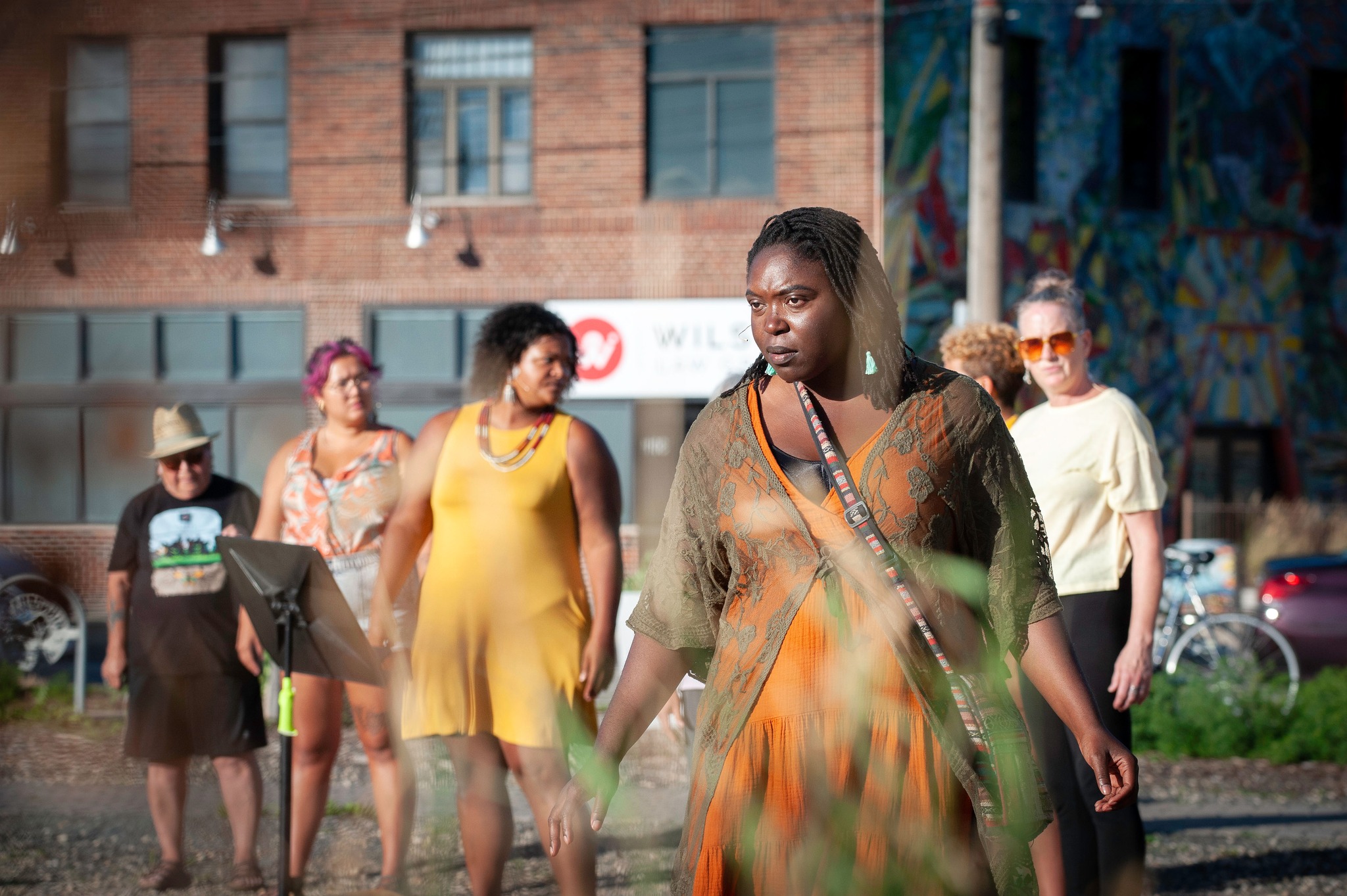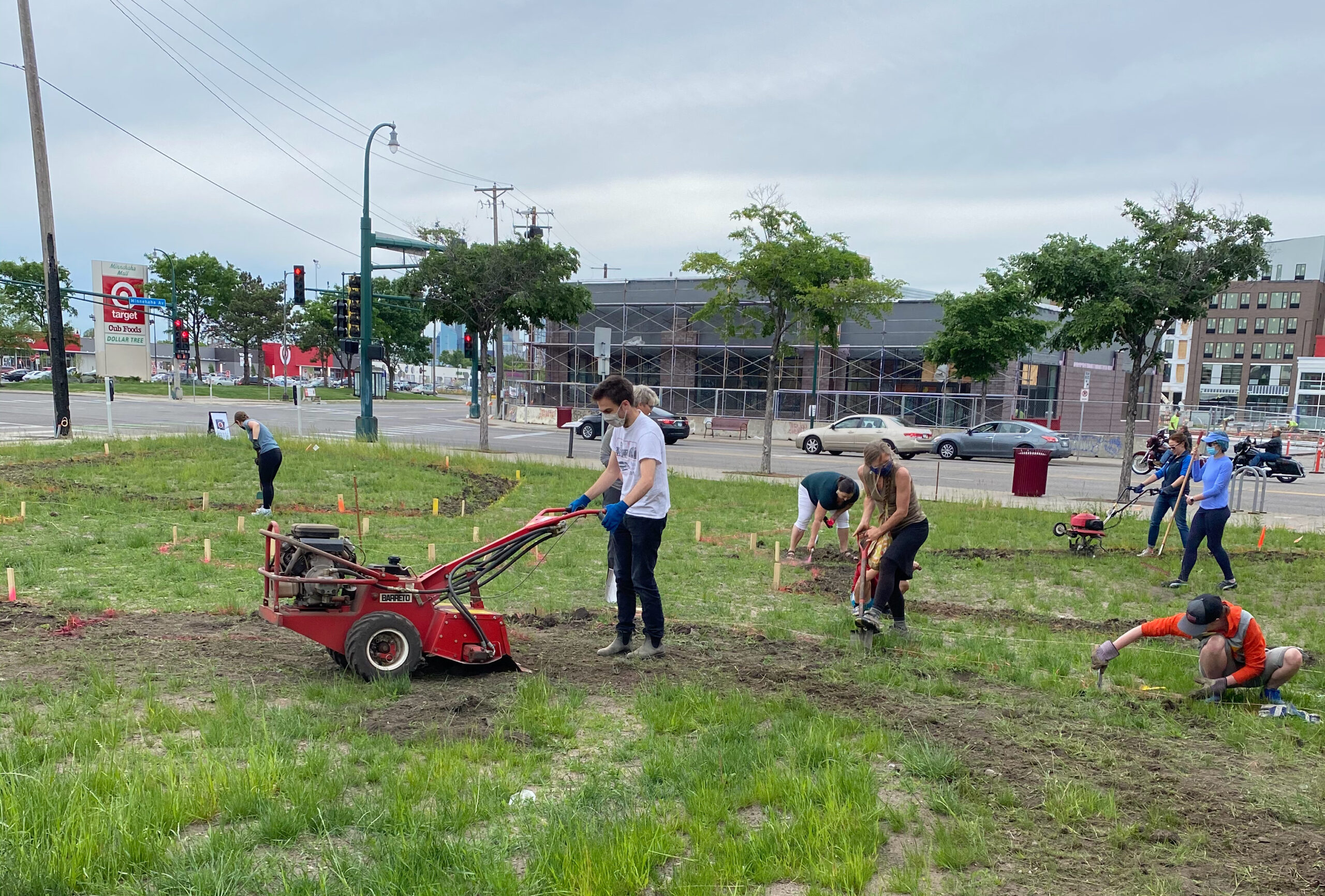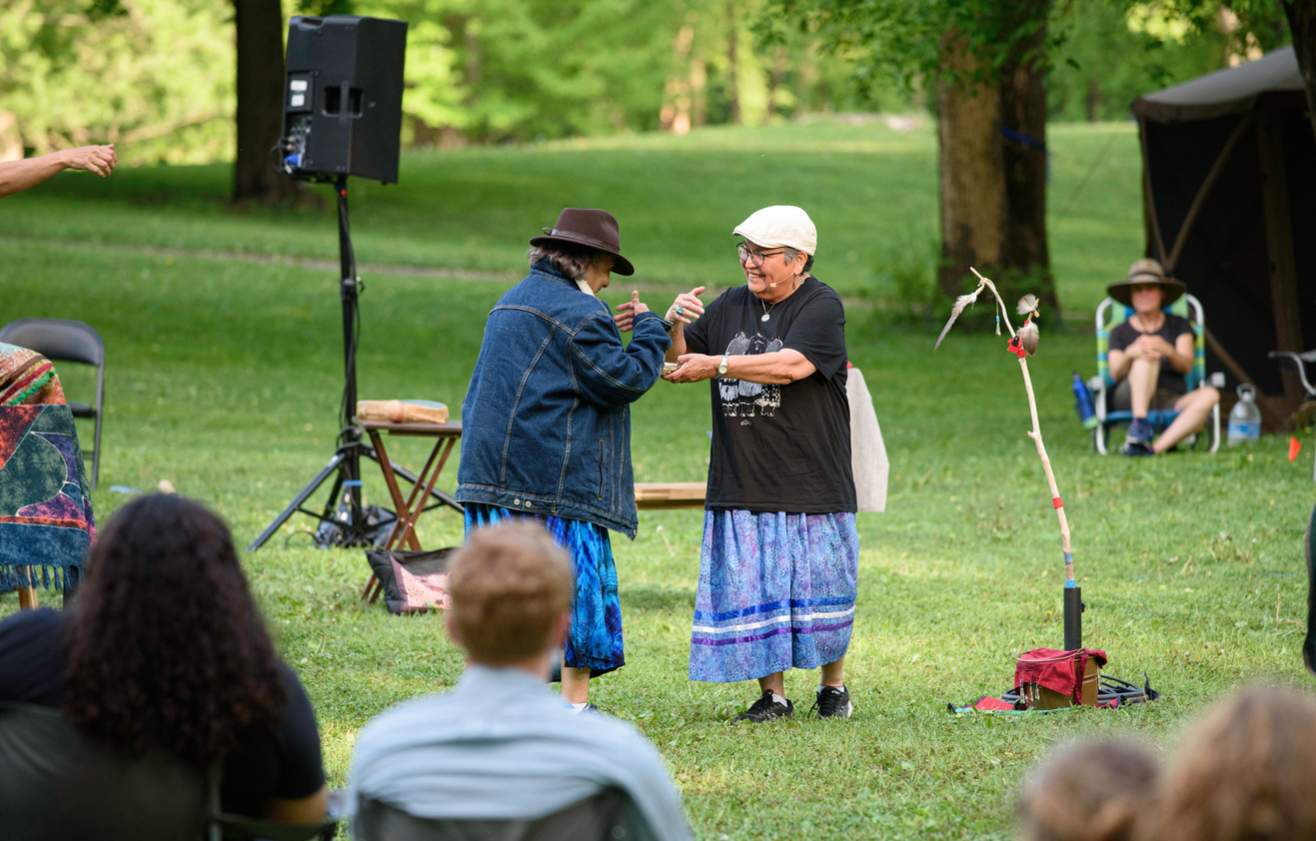When Meena Natarajan and Dipankar Mukherjee decided to open and house the Pangea World Theater in Minneapolis, they sought to develop and create sustainable solidarity. The plan was to create a theater space that connected people from all walks of life. They chose to rent out a space on Lake Street in the Downtown Longfellow neighborhood and for the past 25 years, Natarajan and Mukherjee have grown Pangea World Theater into a local treasure with a national reputation in the arts.

Since the beginning, Natarajan and Mukherjee’s hope for Pangea has evolved in a way they could have never imagined. Pangea’s mission was to create a multi-disciplinary theater that embodies decolonizing practices of solidarity, sustainability, and equity. Their first production was written by Natarajan herself, titled, Conference of the Birds, a theatrical adaptation of a twelfth-century Sufi poem. Since then, Pangea’s focus has been charged by solidarity and collaboration. For example, Pangea has partnered with Latinx theater company Teatro del Pueblo since 2008, leading to the development of the Latino Asian Fusion program in 2014. Pangea’s work has garnered several national and international awards, including the International Gardens of Peace Award in 2000, 3M Innovation of the Arts Award in 2002, the Special Recognition Award from the Advocates for Human Rights in 2005, as well as being chosen as one of five national organizations to join the National Performance Network Leveraging and Networking Equity in 2017.
Despite national and international recognition, Natarajan and Mukherjee were determined to stay in Minneapolis, where they saw the need and the value for organizations such as Pangea.
Lake Street has been a bustling community of businesses since its inception in 1856. Many of these businesses represented Minneapolis’ rich community of immigrants and refugees. The protests following the murder of George Floyd in May of 2020 and the aftermath of the COVID-19 pandemic left Lake Street in ruins. The uprising in Uptown saw the destruction of several buildings along Lake Street, including ones that hosted Pangea World Theater events for over two decades.
Chrissie Orr, a friend of Pangea’s and internationally recognized community-based artist said of Natarajan, Mukherjee, and the community they are trying to build with Pangea World Theater, “The generosity of spirit and their vision and their capacity as human beings really ripples out and I think they’ve built such great trust in Minneapolis that is not always easy to do, and they do cross over many boundaries and barriers. They’re consistent. They don’t let something go. They will listen and make it work,” said Orr.

In the wake of the civil unrest, community members and business owners from the area began holding community gatherings on the front lawn of the Holy Trinity Lutheran Church. The gatherings which came to be known as Longfellow Rising, which would eventually become a nonprofit over the next two years, were an attempt to build community cohesion and strength after the historic civil disruption. “These meetings became a place where the community could bond and band together. It was a place we could all imagine our community in the way we know it can be,” said Pastor Ingrid Rasmussen, the lead pastor at Holy Trinity Lutheran Church.
Natarajan and Mukherjee began attending the meetings and shared leadership with other members in the group. Pastor Rasmussen got to know the pair. “I came to really appreciate the work Pangea does. They are so grounded in community. Pangea honors the authentic values of whatever communities they work with, such as the poetry along the cultural corridor. They honor art that is accessible to people, done by and for community members.”
As Pangea reimagines the kind of community it wants, it also reimagines its future and likely, permanent home. “So much has been destroyed. We are in a position to actually dream a little bit and say, okay, let’s create those spaces. Let’s create a space of belonging for everyone in that neighborhood.” said Natarajan.

MIGIZI, a Minneapolis-based nonprofit organization working with American Indian youth, lost their building during the unrest and decided to move to another location on Lake Street. It was important to them that their former property went to a BIPOC owner or organization. Through a series of conversations, the property was purchased by The Holy Trinity Lutheran Church and will eventually be donated to Pangea when the theater is in a place to receive it. The lot will serve as Pangea’s new location.
Right now, they plan to build The Center for Peace and Social Justice on this Lake Street lot with an extension across the street from the Holy Trinity Lutheran Church. It will be a regenerative building with a greenhouse, solar panels, café, rehearsal and event spaces as well as a 200-seat theater where Pangea will continue to conduct its art. The space will also be utilized as an incubation space for artists and for businesses/nonprofits run by people of color.
“From the ashes we are reimagining our community,” said Mukherjee.
Pangea World Theater was part of the Community Creativity Cohort 2, a group of 40 organizations that are making art central to their community-building efforts. The Cohort was funded by the Bush Foundation and operated by Arts Midwest from 2019-2022. Check out our History to learn more about this program. This story was created in partnership with NewPublica.
